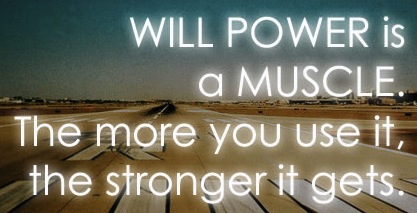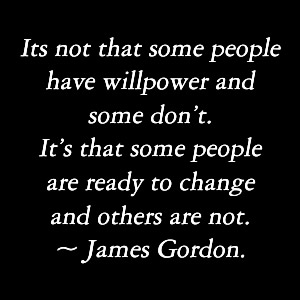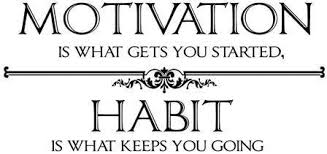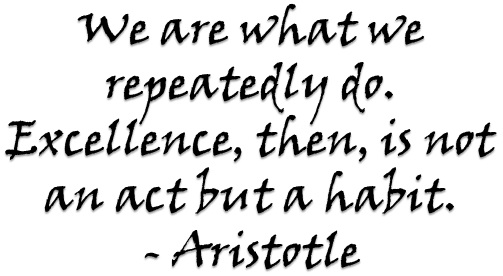Shruti had been participating in the Dream Run of the Mumbai marathon since 2 years. She was challenged by her friends to register for the half marathon (21 kms) for the next event which was 7 months away.
Due to peer pressure, she did register for the half marathon, but developed cold feet 5 months before the event. She tried running on the beach, but could never go beyond 13 kms; after which she lost all her energy.
Shruti’s elder brother Randeep and her parents encouraged her to practice harder, and change her daily routine. She watched a few motivational videos on youtube, and got charged up to face the challenge. Her willpower seemed to be motivating her to go for it. Now there was no stopping Shruti. She started waking up at 5 am and go for practice.
But things did not turn out as expected. Shruti could not concentrate in her college lectures as she was too tired and drained out. The problem was in her daily routine. Shruti generally slept at 12 in the night and woke up at 7 am. The 2 hours of less sleep played havoc in Shruti’s life and adversely affected her health. All her willpower went in vain and she eventually stopped her practice.
Randeep consulted a fitness expert cum nutritionist to help out his little sister. Here is what the expert suggested:
- Sleep at 10 pm and get up at 5 am
- To drink 2 glasses of water and eat 2 fruits before she went for her practice
- To carry a water bottle with her, and keep sipping on it every 15 minutes
- To start with 10 kms and increase 1 km every week until she reached her target of 21 kms
- To eat a wholesome breakfast with a protein shake after she returned home
- To eat 6 healthy meals daily (a meal after every 3 hours) until the marathon
- Watch motivational videos daily
Shruti diligently followed all the advice and tips suggested by her fitness mentor. She managed to successfully run the half marathon along with her friends, and was elated to say the least. Not only did she develop her self-confidence, she felt healthier and managed to lose a lot of extra weight.
Isn’t Shruti’s story similar to ours? How many times do we make up our minds about achieving some goal; but fall short and give up in between. We are often so excited at the beginning of every venture, but somehow the initial willpower does not last long and we eventually give up! Shruti reached her goals, only because she channelized her initial willpower into small but healthy habits. They were little things like sleeping on time, or eating healthy meals at the right time, but these habits helped her reach her goal. In fact these habits so got engrained in Shruti, that she continued them even after the marathon!
The capacity to say “no” to the call of temptation and desire to quit is called willpower. You can make the willpower centers of your brain denser and better connected by meditating every day. Neuroscientists have found that meditation leads to better focus and self-control after just 3 hours of practice. MRI scans show increased neural connection in brain regions responsible for impulse control. Our willpower is not some elusive emotion to capture; it is a finite muscle that we can work only so much before it wearies.
To activate your willpower, you must remind yourself why something is important to you. If you are engaged in meaningless tasks or jobs, willpower will not save you. When you have a purpose and are pursuing a goal that has meaning and value for you, your willpower can be tapped into because you are committed to something important to you. When people have a willpower failure, it’s because they haven’t anticipated a situation that’s going to come along – Charles Duhigg
Haven’t we often promised ourselves that we were going to finish an assignment, but seconds later reached for your laptop or the TV remote and abandoned the task altogether? We’ve all done it. That’s where habits are essential. With a foundation of willpower enhancers in mind, we must move to good habits. Willpower is important to get something started, but it is not sufficient to make changes that last. For that we need to create good habits.
We already have a lifetime of habits we’ve created, so infusing a new one is a process. It takes about 45 days to establish a new habit in three phases. The first feels unbearable. The second is uncomfortable. The third becomes unstoppable. When you get to that third phase, the habit is making you happy. When you’re learning and developing a new habit, give yourself permission to be imperfect.
Nothing in the world can take the place of persistence. Talent will not; nothing is more common than unsuccessful men with talent. Genius will not; unrewarded genius is almost a proverb. Education will not; the world is full of educated derelicts. Persistence and determination alone are omnipotent—Calvin Coolidge
Small but life changing habits we can inculcate in ourselves could be:
- Eating healthy at the right times.
- Meditating and deep breathing.
- Sleeping and waking up on time.
- Physical exercise.
- Praying
- Reading
- Counting our blessings.
An important exercise we can engage in is to create a daily-to-do-list, for the rest of our lives. This will give us a sense of purpose and meaning to the day.
It would be best to take a second every night before we turn out the light and, in that moment, quit worrying about what we don’t have. Quit worrying about what others have that you don’t. Think about what you do have. We would then have a lot to be thankful for.
Another important change we need to instill in our lives is taking control of what we speak. E.g. Saying I don’t rather than I can’t– (for instance, ‘I don’t eat sugar’) instead of ‘I can’t eat sugar’. Saying ‘I can’t’ connotes deprivation, while saying ‘I don’t’ makes us feel empowered and better able to resist temptation.
Use the clock to help you. If you want to do something, set aside a certain time for it. Be specific. Not “I’ll do this in the afternoon” or “I’ll do this sometime before 9am,” but “I’m going to start this at 9:30 and end at 10:30.”
We can be motivated to lead a healthier lifestyle, and still spend our evenings with a bottle of cola and bag of wafers in front of the TV. We can be motivated to write a book, and still not get beyond the table of contents. What we have to realize is that it is only the combination of will power and habits that helps us achieve long-term results. If we use willpower to create a habit, we will have a chance to achieve lasting change. And because building new habits takes time and energy/willpower, it is best to work on few habits only.
If we do try to form too many habits at the same time, we’ll end up right back where we started: shattered, stressed-out and struggling to accomplish our goals. In order to avoid this, we have to focus on one habit at a time. Take it one habit at a time and use that innate ability of yours – willpower – when you need the extra push. Once you successfully develop a habit, don’t rush off to the next one too quickly. Take a moment to celebrate and be proud of your accomplishment. Let the habit become a part of your life and then move to the next one.
I would like to conclude by quoting a few lines by Samuel Smiles:
Sow a thought, and you reap an act;
Sow an act, and you reap a habit;
Sow a habit, and you reap a character;
Sow a character, and you reap a destiny.”
So are you ready to flex your willpower muscle, and develop some life changing habits? Think about it!




